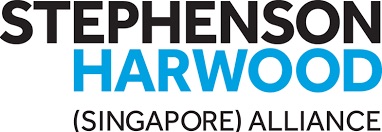24 August, 2015
On 1 July 2015, the first stage of the two-stage implementation of the Companies (Amendment) Act 2014 (the “Amendment”) came into effect. The second stage of the implementation is expected to come into effect in the first quarter of 2016. The Amendment provides for the largest number of changes to the Companies Act (the “Act”) since its enactment. The changes aim to provide for greater business flexibility and improve corporate governance.
We wish to highlight some of the amendments that took effect on 1 July 2015.
1. Relaxation of the conditions for nominee directors to disclose information to persons they represent
The conditions that apply when a nominee director wishes to disclose information to a person whose interests the director represents has been relaxed under the Amendment. Nominee directors may now disclose information to such persons, if: (i) such disclosure if not likely to prejudice the company; and (ii) it is made with the authorization of the board of directors. The board may authorise the disclosure of all or any class of information or only specific information as specified in the authorisation. The requirement of a declaration at a meeting of directors of the name, office or position of the person to whom the information is to be disclosed and particulars of such information has been repealed.
2. The expansion of circumstances for disqualification of directors.
Circumstances leading to disqualification to act as a director are also expanded under the Amendment, and offences under Part XII (Market Conduct) of the Securities and Futures Act (Chapter 289), such as insider trading and market manipulation, are now included. In addition, where a civil penalty under section 232 of the Securities and Futures Act is imposed, the Monetary Authority of Singapore can apply to disqualify a person from directorship.
3. Introduction of a small company audit exemption.
The provisions for audit exemption for exempt private companies have been replaced with provisions on the new audit exemption for small companies. Previously, a company was exempted from the requirement to audit its accounts annually only if it was an exempt private company and had annual revenue of SG$5 million or less.
This new audit exemption was introduced with the intent of reducing compliance costs for smaller private companies. A private company qualifies as a small company in a particular financial year if it satisfies any two of the following three quantitative criteria for each of the two financial years immediately preceding the relevant financial year: (i) the revenue of the company for each financial year does not exceed SG$10 million; (ii) the value of the company's total assets at the end of each financial year does not exceed SG$10 million; (iii) it has at the end of each financial year not more than 50 employees. For a company which is part of a group to be exempt from statutory audit, the company must qualify as a small company and the group must also meet at least two of the three quantitative criteria on a consolidated basis.
4. Empowering the Court hearing a winding-up application to order a buy-out instead of ordering winding-up.
Previously, under section 254(1) of the Act, the Court may issue a winding-up order if the directors had acted unfairly to the members or if the Court is of opinion that it is just and equitable to do so. However, with the Amendment, the Court now has the flexibility to order that the interest in shares held by one or more members of the company be purchased by the company or other members of the company instead of winding-up the company if it is of opinion that it is just and equitable to do so. This will likely be exercised in cases where continuation of the company in question is still viable or feasible.
5. Removal of prohibition against financial assistance by private companies and introducing new exceptions to financial assistance for public companies and their subsidiaries.
The prohibition against financial assistance has been relaxed under the Amendment. In particular, the financial assistance provisions are no longer applicable to private companies. However, public companies and their subsidiaries remain subject to the prohibition.
Public companies and their subsidiaries may avail themselves under a new "no material prejudice" exception. This exception provides that a public company or a subsidiary of the same may provide financial assistance in connection with the acquisition of its shares if the giving of financial assistance does not materially prejudice the interests of the company or its shareholders or the company's ability to pay its creditors. Additionally, the board of directors of the company will be required to pass a resolution that the company should give the financial assistance and that the terms and conditions under which the financial assistance is proposed to be given are fair and reasonable to the company. The resolution must set out in full the grounds for the directors' conclusions. Thereafter, the company must lodge with the registrar a copy of the resolution.
6. Shareholders' approval not required for payment of compensation up to a year's emoluments to executive director for termination of his employment.
With the view that the payment to an executive director as an employee should be for the board of the company to decide, the Amendment introduces a new exception from shareholders' approval for payments to an executive director for loss of office, provided that: (i) the compensation for termination of the employment is pursuant to an existing agreement between the company and the executive director; (ii) the amount that is paid out is not more than the relevant director’s total emoluments for the one year immediately preceding that director’s termination of employment; and (iii) the particulars of payment are disclosed to shareholders before payment is made.
Elaine Beh, Partner, Virtus Law LLP (a member of the Stephenson Harwood (Singapore) Alliance)
elaine.beh@shlegalworld.com





